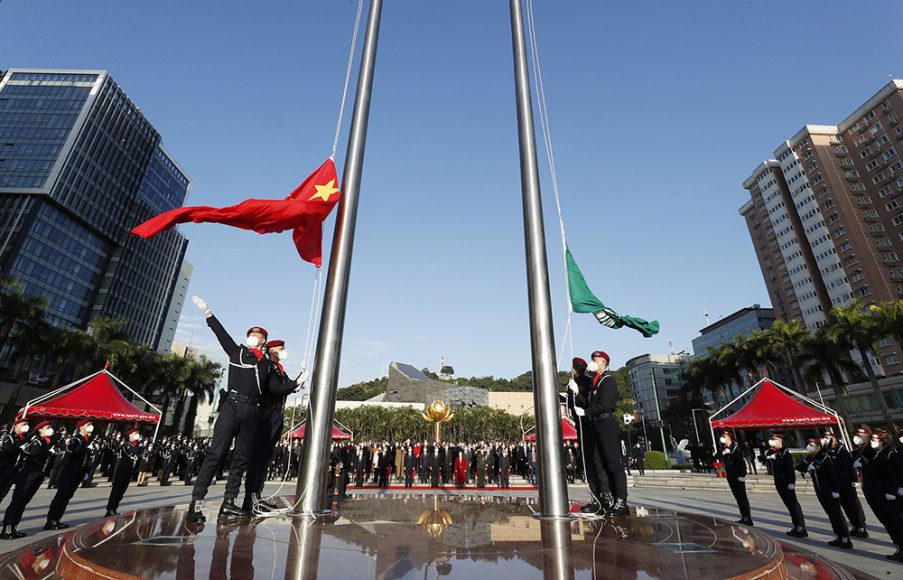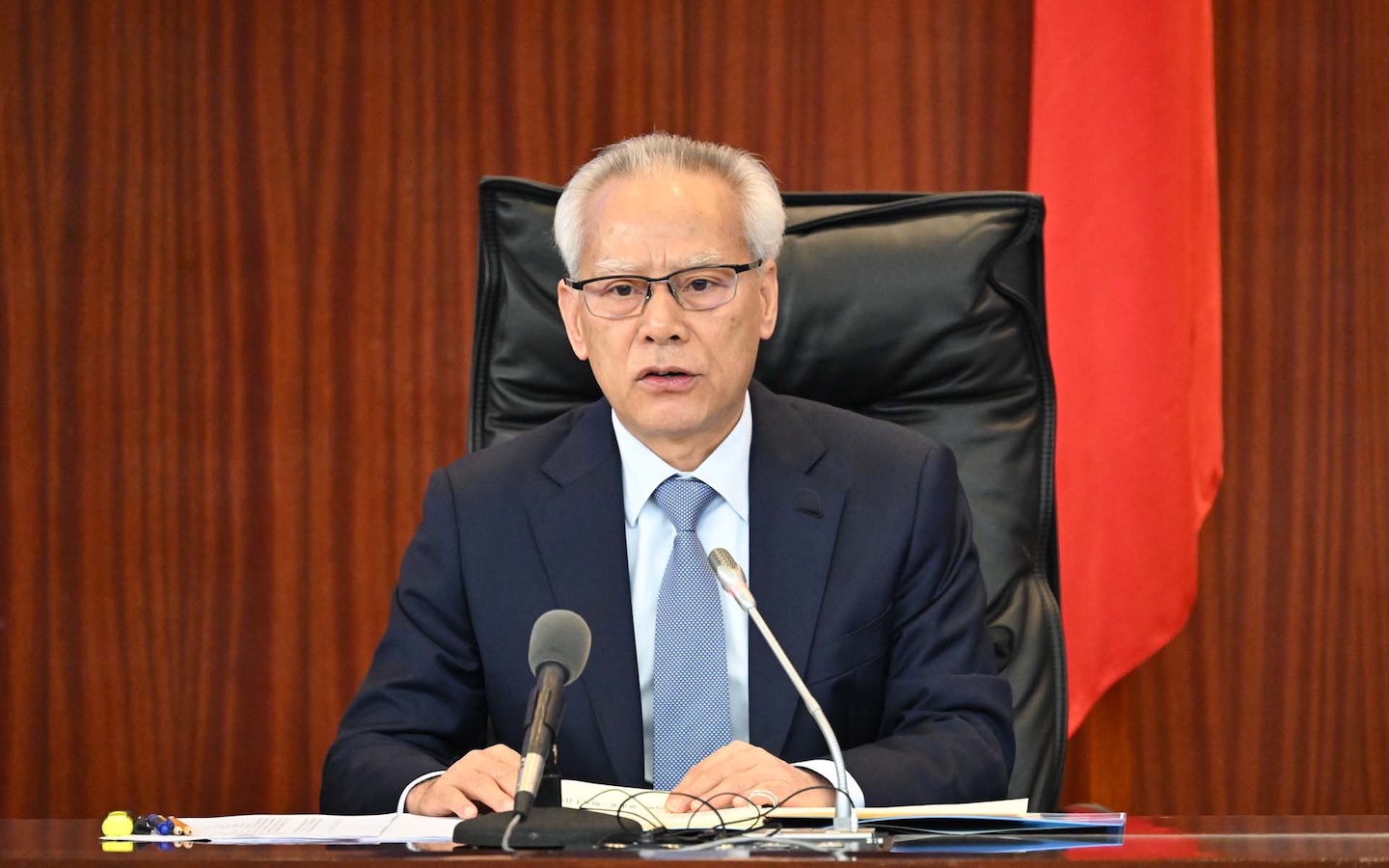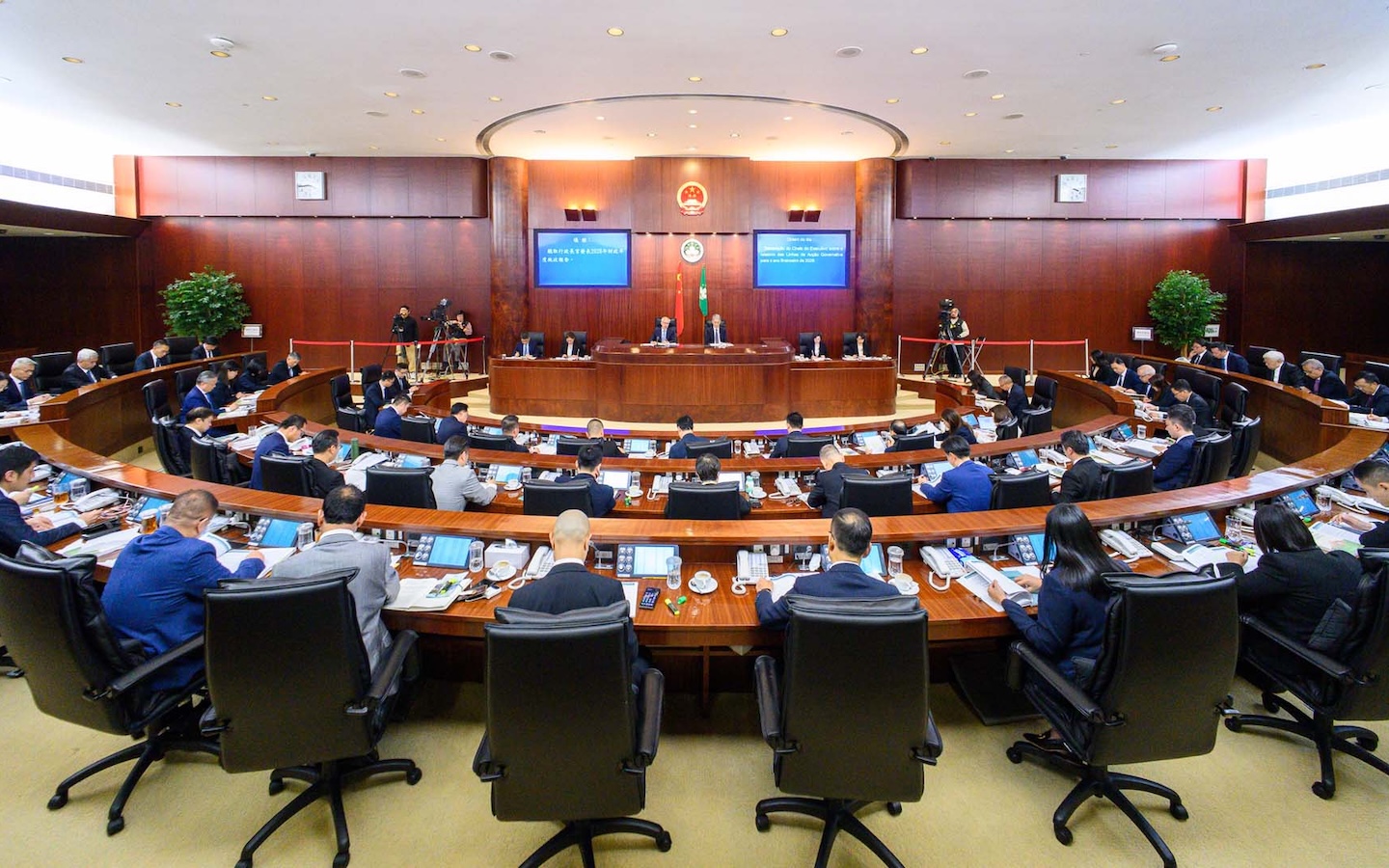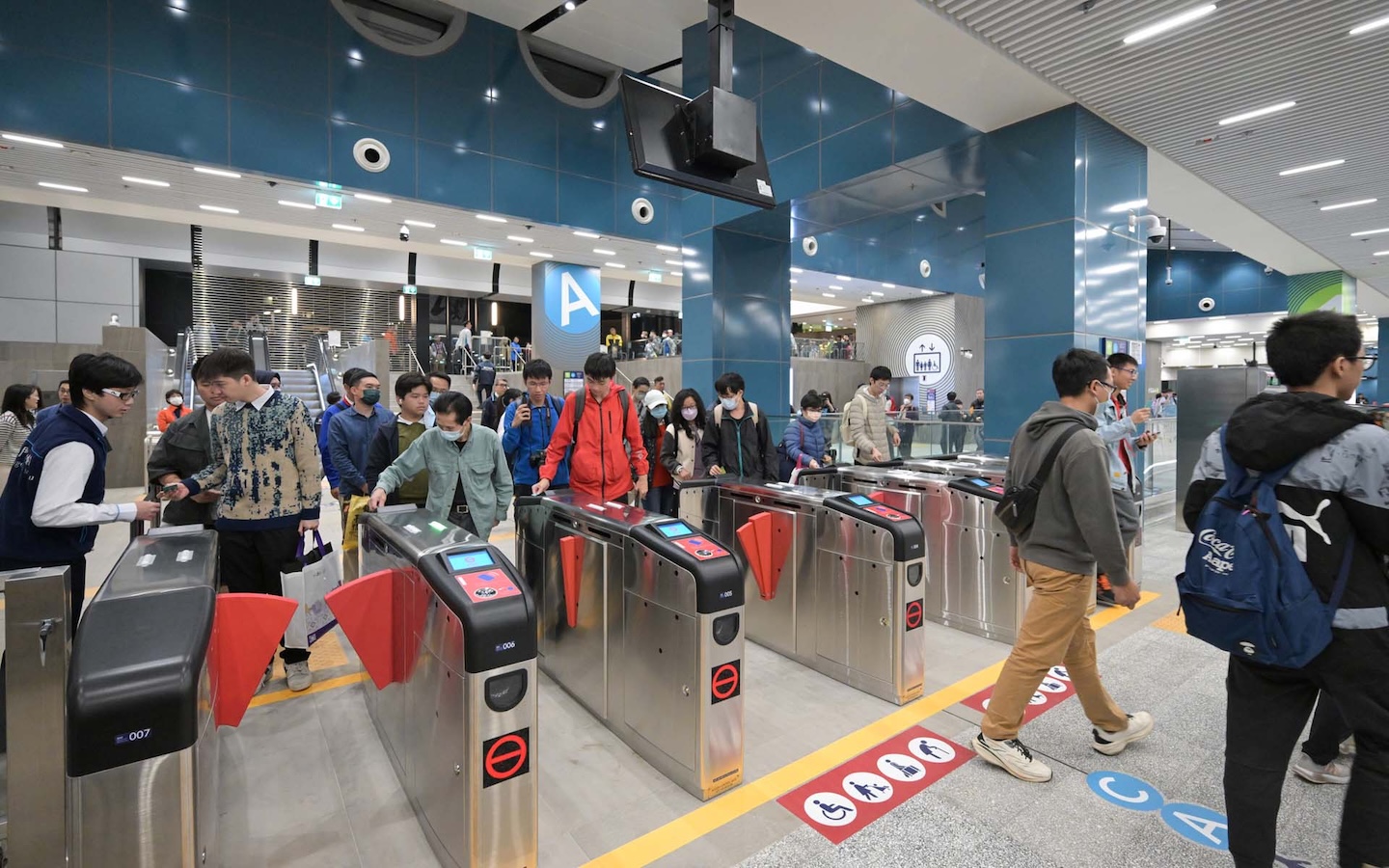Covid-19, Macao’s economic diversification, and its integration with the mainland were the main subjects of Chief Executive Ho Iat Seng’s speech commemorating the 23rd anniversary of the Macao Special Administrative Region (MSAR). During the reception, held on 20 December, Ho called on Macao’s support in achieving the central government’s goals for the city’s stable post-pandemic development.
In his speech, Ho acknowledged that Macao’s economy, the livelihoods of its people, and the local job market had been greatly impacted by the Covid-19 pandemic over the past three years. He stressed that Macao had adhered to the national Covid-19 prevention policy throughout the pandemic, to prioritise people’s safety and health as well as unite all sectors of civil society.
“The concerted efforts ensured that Macao has been able to safely overcome the severest challenges, including the 18 June outbreak,” Ho noted.
Looking ahead to 2023, Ho said the local government would implement the ‘20 adjusted measures’ and the ‘10 new measures’ announced by the country’s State Council in November. These amount to a general loosening of Covid-19 controls that affect travel, quarantine, lockdowns, testing, and more.
Ho emphasised that “the focus of Covid-19 control has changed from infection prevention and control, to medical treatment – thereby safeguarding people’s health and preventing serious cases.” He promised that the government would closely monitor all Covid-19 developments and allocate medical resources as needed. “Our aim is to lower the risk of fatalities, in order to safeguard people’s lives and health, and to minimise the impact of the pandemic on Macao’s socio-economic development,” Ho said.
Ho underlined that Macao’s government had launched multiple rounds of financial relief to stave off pandemic-related hardships experienced since Covid-19 began to affect Macao. The government spent MOP 68.3 billion (US$8.5 billion) on “maintaining regular welfare for local residents” and MOP 32.3 billion (US$4 billion) on providing financial assistance in direct response to the pandemic – a total of MOP 100.6 billion (US$12.5 billion), said Ho.
He added that Macao’s government would “always uphold the ‘One Country, Two Systems’ principle”, as well as when upgrading the quality of public administration and in the fine-tuning of economic development. Ho also underlined his government’s ongoing effort to adhere to the rule of law, effectively safeguard national security, and continuously improve the overall quality and standard of governance in Macao. He added that the government had also ensured firm implementation of the “patriots governing Macao” principle, and facilitated amendments to the Law on Safeguarding National Security.
A brighter economic future on the horizon
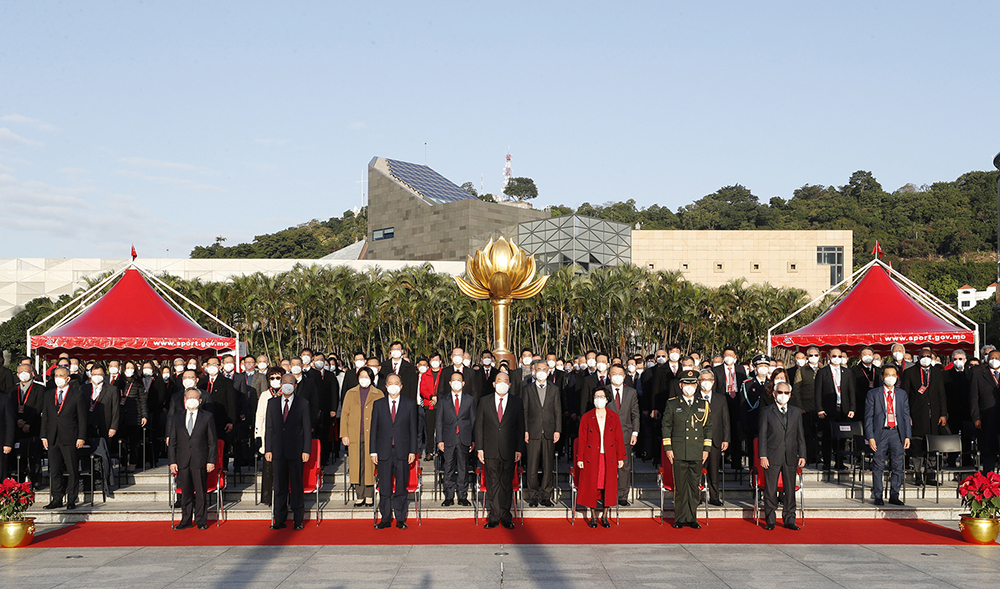
During the reception, the chief executive guaranteed that Macao was set to overcome its current economic predicament. He cited the gradual restrictions on people’s movements, the fact Macao’s new gaming concessions had been finalised (six gaming operators were granted licences in December), and orderly implementation of the “1+4” strategy for economic diversification as causes for optimism.
The “1+4” strategy, announced by the government in November, aims to enrich Macao’s function as “One Centre” for integrated tourism and leisure, while facilitating the development of four nascent industries: big health, modern financial services, high tech, and the sectors of conferences and exhibitions, commerce and trade, and culture and sport.
Helping pave the way for economic prosperity, Ho said his government made several key accomplishments during the pandemic. One was implementing the “five-rung housing ladder” policy. Another was facilitating big health’s development through advancement of the Islands District Medical Complex, and by utilising traditional Chinese medicine research and development as an entry point. There was also the government’s revision of its gaming laws and regulations, plus new legislation around hiring offshore talent – making it easier to employ people with specialised skills needed for the development of the industries identified in the “1+4” strategy.
“The government has completed its legislative work on schedule; finished restructuring 28 public departments and 13 autonomous funds; launched the 2.0 version of the Macao One Account service for the convenience of the public and businesses; and gradually deepened public administration reform,” Ho said in his speech.
Proactive integration is key for Macao
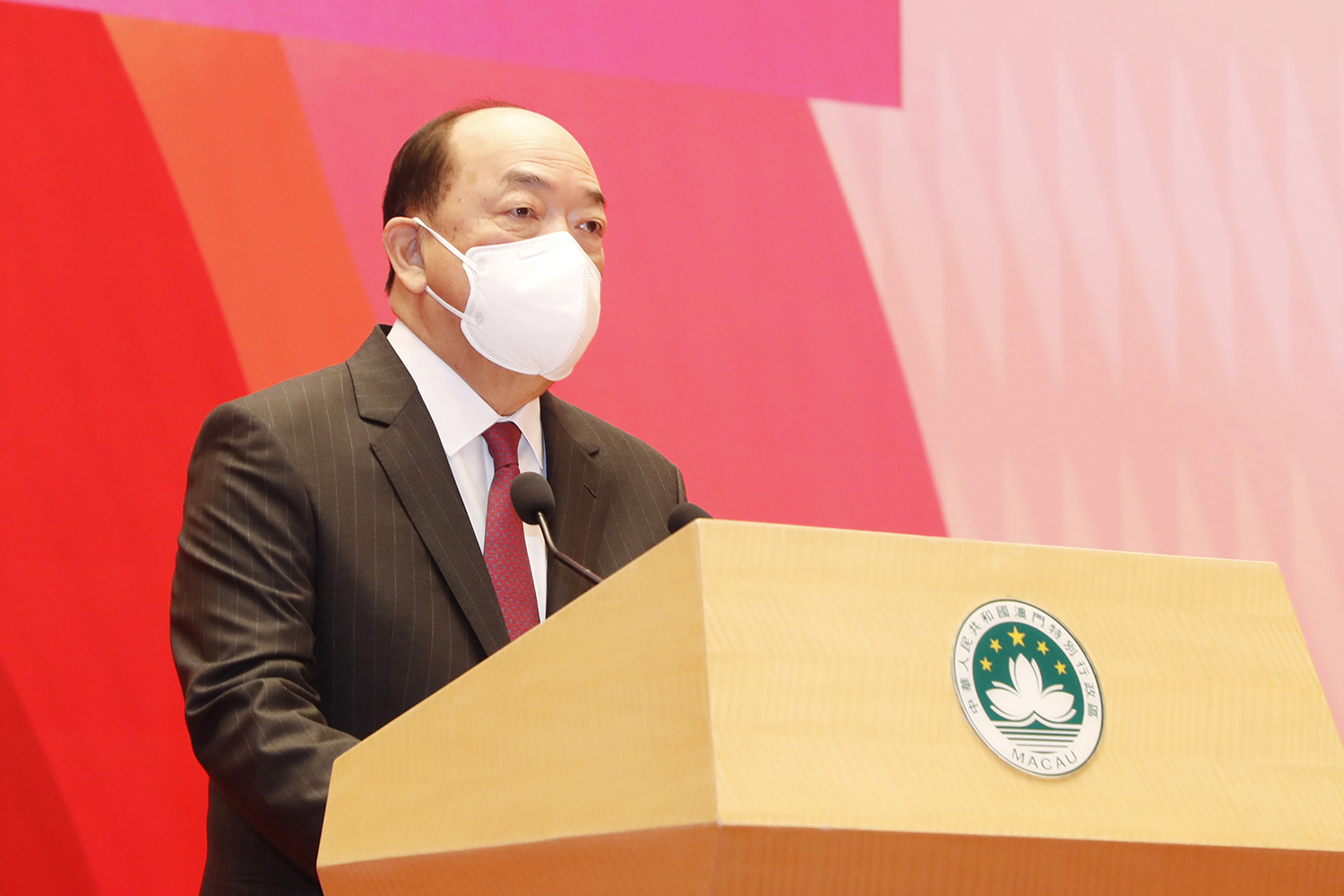
Ho said that his government is determined to integrate Macao more proactively into the country’s overall national development plan.
The 2nd Five-Year Plan for Economic and Social Development of the MSAR has already been published, and aligns comprehensively with the national development strategy, he noted.
Macao has already been an active participant in the Guangdong-Hong Kong-Macao Greater Bay Area and the Belt and Road Initiative, as well as in the Guangdong-Macao Intensive Cooperation Zone’s development.
Ho said that in 2023, “the local government will fully implement the spirit of the 20th National Congress of the Communist Party of China, and President Xi Jinping’s raft of important instructions.”
“In line with the overall policy direction, Macao will effectively seize the opportunities arising from national development; make good use of the policies and measures introduced by the central government in support of Macao’s development; focus on promoting economic recovery; actively improve people’s livelihoods; tackle the deep-rooted conflicts and problems in economic and social development; expedite appropriate economic diversification and the development of the Guangdong-Macao Intensive Cooperation Zone in Hengqin; and better integrate the Macao Special Administrative Region into the overall national development plan.”
Ending his speech, Macao’s chief executive reiterated how his policies “will help Macao continue to break new ground in various undertakings, and make new contributions to realise the Chinese Dream of national rejuvenation through the Chinese Path to Modernisation.”
On the day, a flag-raising ceremony was held at Golden Lotus Square followed by a reception of around 350 people at the China-Portuguese-speaking Countries Commercial and Trade Service Platform Complex.
